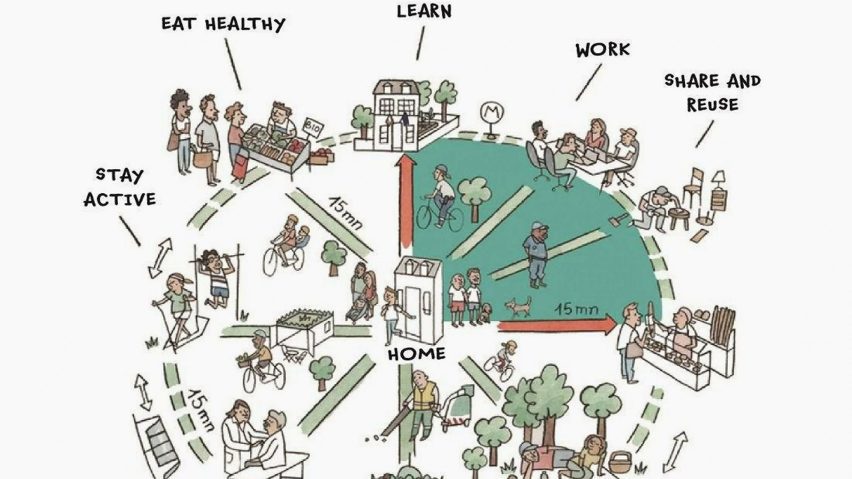This week on Dezeen, we published an exclusive interview with 15-minute city creator Carlos Moreno in which he discusses the conspiracy theory that his urbanism strategy was designed to restrict people's freedom.
The 15-minute city concept advocates for creating polycentric cities where no essential amenities are further than a short walk or cycle ride away.
This has been misinterpreted by a number of people who fear that it would involve preventing citizens from leaving their 15-minute radius, and was even debated in the UK parliament by MP Nick Fletcher.
"I was surprised," Moreno told Dezeen. "It's shocking – for me, it is the first time in my life when I was totally targeted by the conspiracy world – communists, Stalinists, neo-fascists."
Following the announcement of the Pritzker Architecture Prize winner last week, American architecture critic Aaron Betsky shared an opinion piece on Dezeen arguing that David Chipperfield did not deserve to win the prestigious prize.
"Chipperfield's work on the whole is bland, unimaginative and overly grandiose," he wrote. "It also contains few or any of the traditional building blocks of architecture: good spaces framed by beautifully proportioned structures."
Continuing our Timber Revolution series, we interviewed two of mass timber's biggest proponents – architect Andrew Waugh of London practice Waugh Thistleton Architects and Canadian architect Michael Green, who compared architects not adopting biomaterials to "dinosaurs".
We also shared case studies of groundbreaking mass-timber buildings including Waugh's nine-storey Murray Grove housing complex from 2009 and Japanese architect Shigeru Ban's Tamedia building, whose timber skeleton is held together completely without screws or nails.
Ban also made the news this week when he helped to create shelters for victims of the earthquake that decimated hundreds of buildings across Turkey and Syria in February.
The system, which has also been used to house Ukrainians fleeing Russia's invasion, is constructed using cardboard tubes and takes three people just five minutes to build.
Finnish technology company Nokia unveiled its first rebrand in 45 years this week, including a new simplified angular logo developed in collaboration with consulting firm Lippincott.
The company also launched its latest G22 smartphone, which comes with replaceable parts and a DIY toolkit that allows users to repair their own phones.
Popular projects on Dezeen this week included a sculptural house in India, the renovated reading room of Toronto's brutalist Robarts Library and the HQ of a Japanese sweet company, which is framed by a giant table and matching chairs.
Our latest lookbooks featured minimalist Tokyo apartments and inviting entrance halls that set the tone for the rest of the home.
This week on Dezeen
This week on Dezeen is our regular roundup of the week's top news stories. Subscribe to our newsletters to be sure you don't miss anything.

